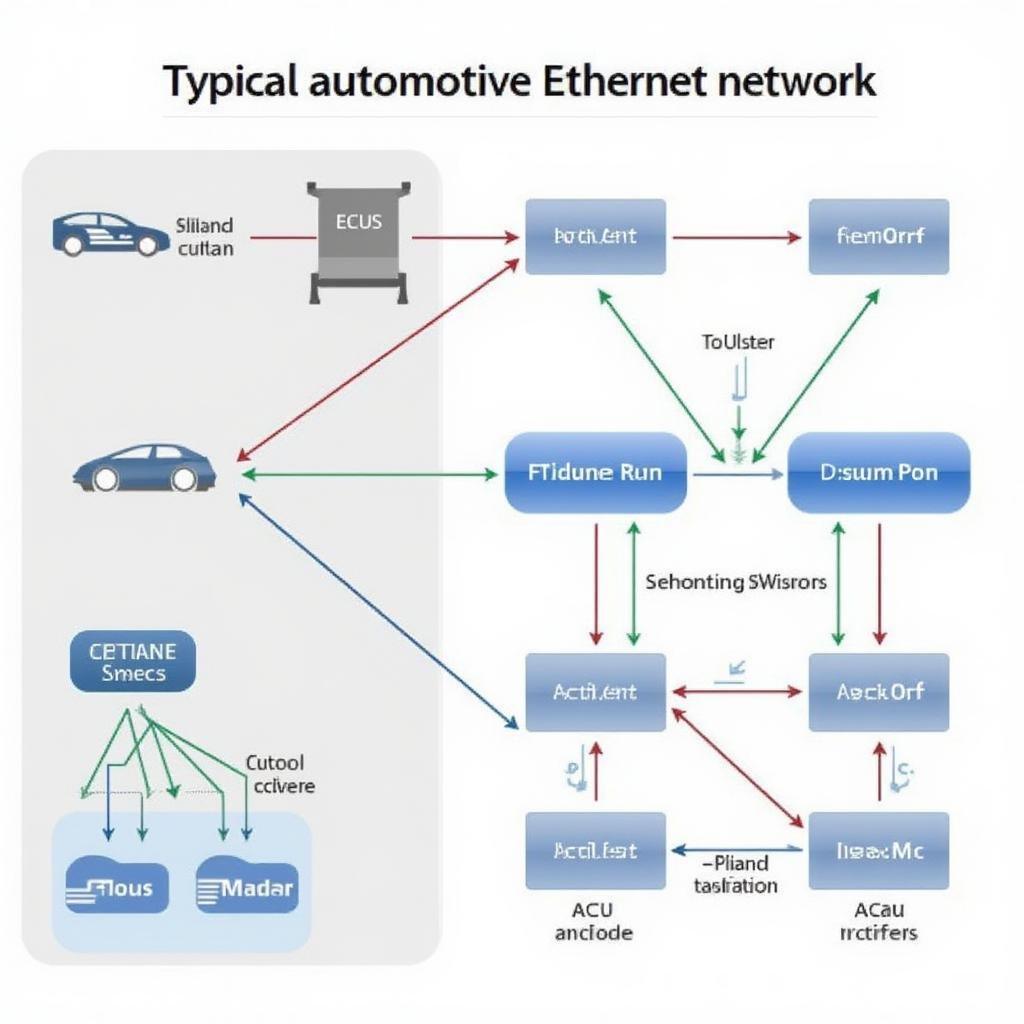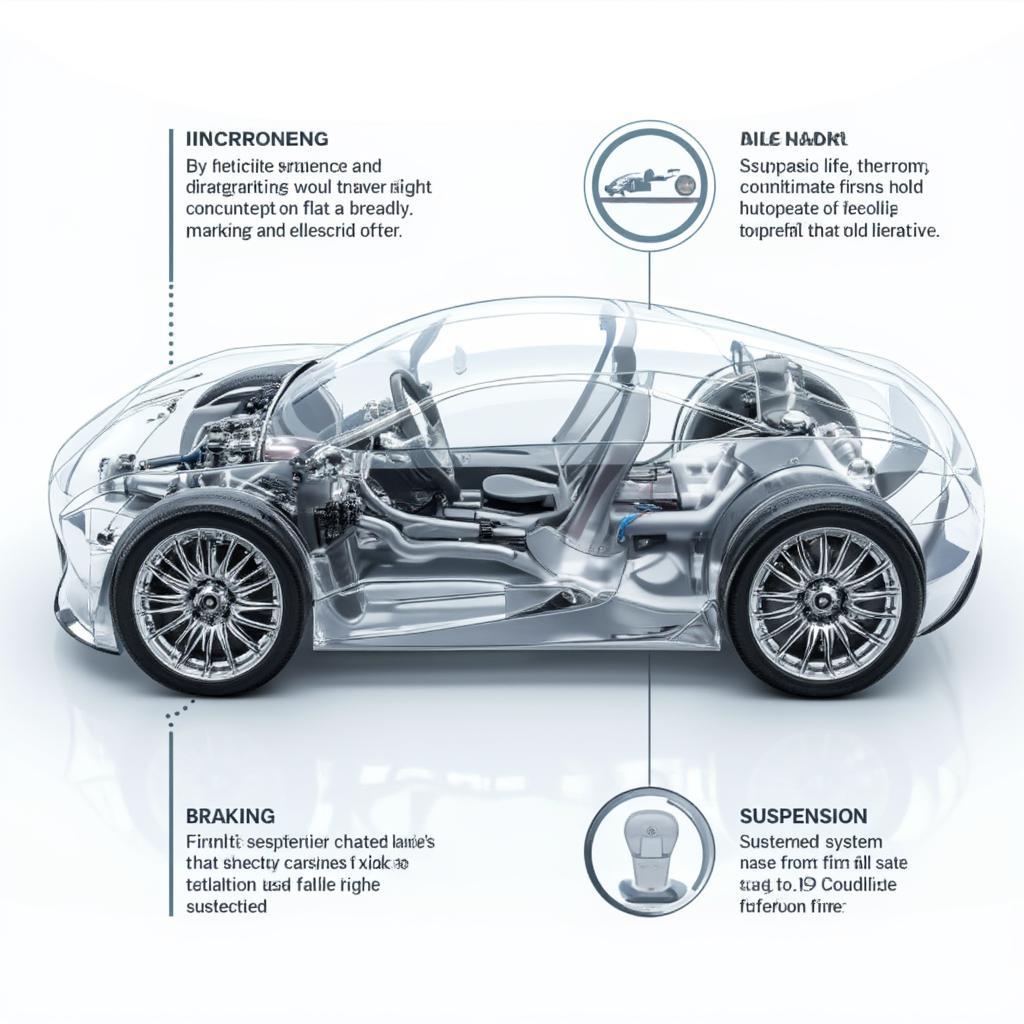The Ultimate Guide to Choosing the Right Auto Car Mechanic Course

Are you passionate about cars and eager to turn that love into a rewarding career? Finding the right Auto Car Mechanic Course is a crucial first step. This comprehensive guide will walk you through everything you need to know, from identifying your goals to selecting the ideal program that fits your needs. We’ll delve into the various aspects of automotive training, helping you make an informed decision that sets you on the path to success.
Choosing an auto car mechanic course isn’t just about learning to fix cars; it’s about mastering the intricate systems that make vehicles function, from the engine to the suspension and everything in between. It’s a journey into the world of diagnostics, repairs, and cutting-edge automotive technology. So, where do you begin?
What Type of Automotive Career Are You Aiming For?
Before you dive into course catalogs, consider your career aspirations. Are you drawn to the thrill of diagnosing complex engine problems, or do you prefer the precision of bodywork and collision repair? The automotive industry offers a diverse range of specialties, and each requires specific training.
- General Mechanic: This is the most common path, involving a broad understanding of vehicle systems. A general mechanic can handle routine maintenance, such as oil changes and tire rotations, as well as more intricate tasks, like brake repairs and engine tune-ups.
- Specialized Technician: If you have a knack for electrical systems or a fascination with advanced driver-assistance systems (ADAS), you might consider specializing. Technicians specializing in specific areas like transmissions, air conditioning, or hybrid vehicles are often in high demand.
- Auto Body Technician: If you love working with your hands and have an eye for detail, auto body repair could be a great fit. Body technicians restore vehicles after accidents, addressing structural damage and cosmetic issues, and mastering the art of metalworking and painting.
- Service Advisor: A service advisor plays a pivotal role in bridging the gap between customers and technicians. They possess excellent customer service skills and can explain technical information in an understandable manner.
- Shop Manager/Owner: If you are business-minded and possess a good understanding of automotive repair, you might aim to run your own shop eventually. This involves not only technical skills but also business management, marketing, and personnel management.
Knowing which path you intend to follow will help you find the auto car mechanic course tailored to your chosen field.
What Are the Core Components of a Good Auto Car Mechanic Course?
A comprehensive auto car mechanic course should cover various key areas to ensure you’re well-prepared for the real world. Here are some of the critical components to look for:
- Safety Practices: Safety is paramount in any automotive workshop. A good program will emphasize safety procedures, proper use of equipment, and handling hazardous materials.
- Basic Automotive Systems: You’ll need a solid grasp of the fundamentals, including the internal combustion engine, electrical systems, braking, steering, suspension, and cooling.
- Advanced Diagnostics: Modern vehicles are complex machines, and diagnostic skills are essential. The best courses will teach you how to use diagnostic tools, interpret fault codes, and identify the root cause of problems.
- Hands-On Experience: Classroom learning is crucial, but hands-on experience is where you’ll truly hone your skills. Look for a program with a strong practical component, featuring real-world repair projects and a fully equipped workshop.
- Software and Technology: As cars become increasingly computerized, a modern auto car mechanic course will teach you how to use diagnostic software, troubleshoot electronic control units, and work with advanced technologies like hybrid and electric vehicle systems.
- Customer Service Skills: While technical expertise is important, communication and customer service skills are equally essential for building trust and rapport with your clients.
- Industry Certifications: Check if the course leads to industry-recognized certifications, such as ASE (Automotive Service Excellence), which can significantly boost your career prospects.
“A strong foundation in the basics, combined with practical experience and a continuous pursuit of knowledge, will always be the key to success in the automotive industry,” says Michael Thompson, a veteran automotive technician and instructor with 20 years experience in the field.
Finding the Right Auto Car Mechanic Course for You
Now that you know what to expect, let’s explore the process of finding the best auto car mechanic course. Several factors will influence your decision:
- Your Learning Style: Do you prefer a traditional classroom setting or a more hands-on, interactive environment? Some programs offer a mix of both. Consider what kind of learning style suits you the best.
- Location: Think about the location of the course and how it fits into your lifestyle. Is it a commuting distance or will you need to relocate?
- Cost: An auto car mechanic course can be a significant investment. Understand the overall tuition fees, costs for learning resources, and any other potential expenses.
- Course Duration: Courses can range from a few months to several years. A longer program may provide more in-depth training but will also take up more of your time. Evaluate your schedule and financial circumstances when looking into course durations.
- Class Size: Smaller class sizes may enable more personalized attention, allowing for more effective interaction with instructors. Look for courses that prioritize student support.
- Instructor Experience: The knowledge and experience of your instructors greatly impact your education. Research instructors’ qualifications and backgrounds, seeking out programs with highly experienced professionals with real-world experience.
- Accreditation: Ensure the course is provided by an accredited institution. Accreditation demonstrates that the course meets industry standards and is recognized by employers.
- Placement Assistance: Does the program help graduates find jobs? Placement assistance services can help you get your foot in the door of your automotive career.
Online vs. On-Campus Auto Car Mechanic Courses
The modern landscape of education allows you to choose from both online and on-campus auto car mechanic course options. Let’s explore their pros and cons:
Online Courses:
-
Pros:
- Flexibility in scheduling.
- More affordable generally
- Learn at your own pace.
- Accessible from anywhere with internet access.
-
Cons:
- Lack of hands-on experience.
- Requires self-discipline.
- May not provide the same level of interaction with instructors and peers.
- May not be as well-recognized by some employers.
On-Campus Courses:
-
Pros:
- Hands-on practical training.
- Direct interaction with instructors and classmates.
- Access to state-of-the-art equipment.
- Opportunities for networking.
- Generally considered more credible by employers.
-
Cons:
- Less flexible scheduling.
- Higher costs.
- Less convenient.
The choice between online and on-campus depends on your personal circumstances, learning style, and career goals. Basic automotive training programs might be available online for foundational knowledge, but advanced skills training will almost always require hands-on experience.
How to Maximize Your Learning Experience in an Auto Car Mechanic Course
Getting the most out of your auto car mechanic course requires a proactive approach. Here are some helpful tips:
- Be Engaged: Attend all classes, actively participate in discussions, and ask questions when you are unsure about something.
- Practice Diligently: Take advantage of opportunities to practice your skills. The more you practice, the more proficient you will become.
- Seek Feedback: Ask for regular feedback from your instructors and classmates. Constructive criticism will help you identify areas where you can improve.
- Stay Current: The automotive industry is rapidly evolving. Stay informed about the latest technologies and advancements in the field. Subscribe to industry publications and take advantage of continued education opportunities.
- Network: Building relationships with instructors, classmates, and other professionals in the field will expand your professional network and help you in your job search.
- Get involved with your community: Community events related to cars or the industry can offer a great opportunity to meet new people. Don’t be afraid to volunteer or just attend, these events are great for networking and meeting people who are passionate about cars, similar to yourself.
- Find a mentor: Having a mentor with experience in the industry will allow you to learn from somebody who has already walked the path that you are starting on. They will have unique insights and may be able to help you avoid common pitfalls.
- Seek practical experience outside the course: Consider pursuing an internship or part-time work in an auto shop. Nothing beats practical application of theory to concrete projects.
“The most valuable learning occurs when you actively engage with the material, challenge your understanding, and apply what you’ve learned in real-world situations,” advises Sarah Chen, a career counselor specializing in automotive trades.
The Future of Automotive Technology and Your Auto Car Mechanic Course
The automotive industry is undergoing a massive transformation, driven by the development of new technologies. As you embark on your journey to becoming a car mechanic, consider how these trends might shape your career:
- Electric Vehicles (EVs): The demand for EVs is growing steadily, leading to an increased need for technicians trained in EV technology. Your auto car mechanic course should introduce you to EV repair and maintenance, charging systems, and battery technology.
- Autonomous Vehicles (AVs): Self-driving cars are gradually becoming a reality. Technicians will need to understand the complex sensors, algorithms, and communication systems that make these cars function.
- Connected Vehicles: With the rise of connectivity, cars are becoming increasingly integrated with the internet. This requires technicians to be well-versed in software, telematics, and cybersecurity.
- Advanced Driver-Assistance Systems (ADAS): ADAS includes technologies like lane departure warning, adaptive cruise control, and parking assistance. Repairing these complex systems requires advanced knowledge and specialized tools.
These emerging trends make it imperative for auto car mechanic course to adapt and keep their curricula up-to-date to produce graduates ready for the future of automotive technology. Automotive vocational course that addresses these emerging trends, would be ideal.

What’s the next step after you complete your course?
Completing your auto car mechanic course is only the beginning of your journey. Consider these post-course steps to further your development:
- Continue Your Education: Technology evolves fast. Stay up-to-date by taking advanced courses, attending workshops, and reading industry publications.
- Certifications: Pursue industry-recognized certifications to demonstrate your expertise, like ASE certifications, which are valued throughout the industry.
- Specialization: As you gain experience, consider specializing in a specific area, such as diesel engines, hybrid vehicles, or diagnostics, to set yourself apart from other mechanics.
- Build a Network: Connect with other professionals in the industry, attend trade shows, and join industry associations to build your network. These relationships can lead to mentorship opportunities, job offers, and valuable knowledge exchanges.
- Seek Feedback: Even after starting your career, continue to ask for feedback from colleagues and supervisors to learn from your experiences and grow your skills.
- Job Application and Interview Process: Develop your resume, practice interview skills, and use the tools your training program provides to help you find the right position.
To help you further enhance your learning and understand the industry, you might want to delve into areas such as auto body training near me. The right knowledge will help you make a smoother transition into the workforce. Likewise, if you are starting your career you might benefit from looking into the mechanic training programs near me to see what courses are being offered in your local area, and find your niche and specialization. If you’re keen on keeping up with the latest technical aspects of cars, researching automotive technician classes can be a great way to boost your knowledge and skills.
Conclusion
Choosing the right auto car mechanic course is a critical decision that can profoundly impact your career path in the dynamic automotive industry. By identifying your career goals, assessing the core elements of a good program, and considering factors like your learning style and budget, you can find the course that best fits your needs. Remember that lifelong learning is critical for staying relevant in this ever-changing field. Embrace opportunities to learn, network, and stay up to date with new technologies. We at Welcome Shock Naue are passionate about the future of automotive technology and support the development of talented automotive professionals.
Frequently Asked Questions (FAQs) About Auto Car Mechanic Courses
-
What qualifications do I need to enroll in an auto car mechanic course? Most programs require a high school diploma or equivalent. Some may have additional requirements, such as a minimum age or basic math skills.
-
How long does it take to complete an auto car mechanic course? The duration varies depending on the program. Certificate programs can take a few months, while associate’s degree programs may take two years. Some advanced programs may even take up to four years.
-
What is the average cost of an auto car mechanic course? The cost varies based on location, type of program, and institution. On-campus programs are generally more expensive than online courses. Expect tuition fees to range from several hundred to thousands of dollars.
-
Can I get financial aid for an auto car mechanic course? Yes, many institutions offer financial aid options, such as grants, loans, and scholarships. You may need to fill out the FAFSA to determine your eligibility.
-
What kind of jobs can I get after completing an auto car mechanic course? Graduates can find employment as general mechanics, specialized technicians, service advisors, or auto body technicians. There are also options to become shop managers or owners with time.
-
What is the difference between an apprenticeship and a formal auto car mechanic course? An apprenticeship is a hands-on training program with an employer. A formal course is a structured program at an institution with classes and hands-on practice. Both have value but a formal course may provide a more well-rounded education.
-
Are online auto car mechanic courses as good as on-campus courses? Online courses can be a good option for learning foundational knowledge. However, on-campus programs usually provide better hands-on training and access to equipment. It’s up to you and what you find important.
-
Do I need any prior experience to enroll in an auto car mechanic course? No, most courses are designed for beginners, so you don’t need prior experience. However, a passion for cars can be useful for keeping you motivated.
-
Are there specific certifications that are important for car mechanics? Yes, ASE certifications are widely recognized and valued by employers. Pursuing additional certifications in specialized areas will also be beneficial for career progression.




